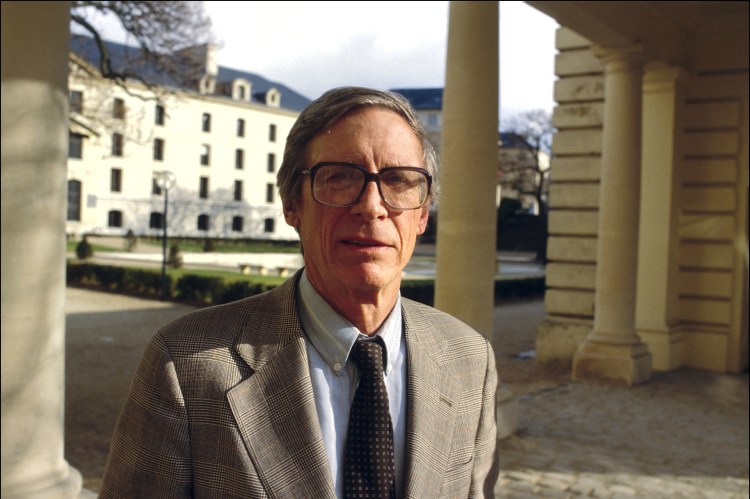 Simone de Beauvoir was a philosopher, novelist, feminist, public intellectual and activist, and one of the major figures in existentialism in post-war France. She is best known for her trailblazing work in feminist philosophy, The Second Sex, but her original contributions to existentialism and phenomenology can be found across her work. Beauvoir has made enduring contributions to the fields of ethics, social and political philosophy, existentialism, phenomenology and feminist philosophy and her significance as an activist and public intellectual are clear. Beauvoir’s life and work continue to inspire contemporary research and debate in the discipline of philosophy and beyond. (Stanford Encyclopedia of Philosophy)
Simone de Beauvoir was a philosopher, novelist, feminist, public intellectual and activist, and one of the major figures in existentialism in post-war France. She is best known for her trailblazing work in feminist philosophy, The Second Sex, but her original contributions to existentialism and phenomenology can be found across her work. Beauvoir has made enduring contributions to the fields of ethics, social and political philosophy, existentialism, phenomenology and feminist philosophy and her significance as an activist and public intellectual are clear. Beauvoir’s life and work continue to inspire contemporary research and debate in the discipline of philosophy and beyond. (Stanford Encyclopedia of Philosophy)
Want to learn more about Beauvoir? Consider these courses:
PHI 120: Perspectives in Philosophy
PHI 220: Ethics
PHI 314: Modern Social and Political Thought
PHI 330: Existentialism and Phenomenology
PHI 361: Feminist Philosophies


 Immanuel Kant is the central figure in modern philosophy. He synthesized early modern rationalism and empiricism, set the terms for much of nineteenth and twentieth century philosophy, and continues to exercise a significant influence today in metaphysics, epistemology, ethics, political philosophy, aesthetics, and other fields. The fundamental idea of Kant’s “critical philosophy” – especially in his three Critiques: the Critique of Pure Reason, the Critique of Practical Reason, and the Critique of the Power of Judgment – is human autonomy. (Stanford Encyclopedia of Philosophy)
Immanuel Kant is the central figure in modern philosophy. He synthesized early modern rationalism and empiricism, set the terms for much of nineteenth and twentieth century philosophy, and continues to exercise a significant influence today in metaphysics, epistemology, ethics, political philosophy, aesthetics, and other fields. The fundamental idea of Kant’s “critical philosophy” – especially in his three Critiques: the Critique of Pure Reason, the Critique of Practical Reason, and the Critique of the Power of Judgment – is human autonomy. (Stanford Encyclopedia of Philosophy)
 ost influential philosopher of the 20th century. His works in political philosophy, particularly his ideas on what constitutes a just institution, are commonly required reading for first-year law students. His theory of justice as fairness describes a society of free citizens holding equal basic rights and cooperating within an egalitarian economic system. His theory of political liberalism explores the legitimate use of political power in a democracy and envisions how civic unity might endure despite the diversity of worldviews that free institutions allow. His writings on the law of peoples set out a liberal foreign policy that aims to create a permanently peaceful and tolerant international order. (Stanford Encyclopedia of Philosophy)
ost influential philosopher of the 20th century. His works in political philosophy, particularly his ideas on what constitutes a just institution, are commonly required reading for first-year law students. His theory of justice as fairness describes a society of free citizens holding equal basic rights and cooperating within an egalitarian economic system. His theory of political liberalism explores the legitimate use of political power in a democracy and envisions how civic unity might endure despite the diversity of worldviews that free institutions allow. His writings on the law of peoples set out a liberal foreign policy that aims to create a permanently peaceful and tolerant international order. (Stanford Encyclopedia of Philosophy)